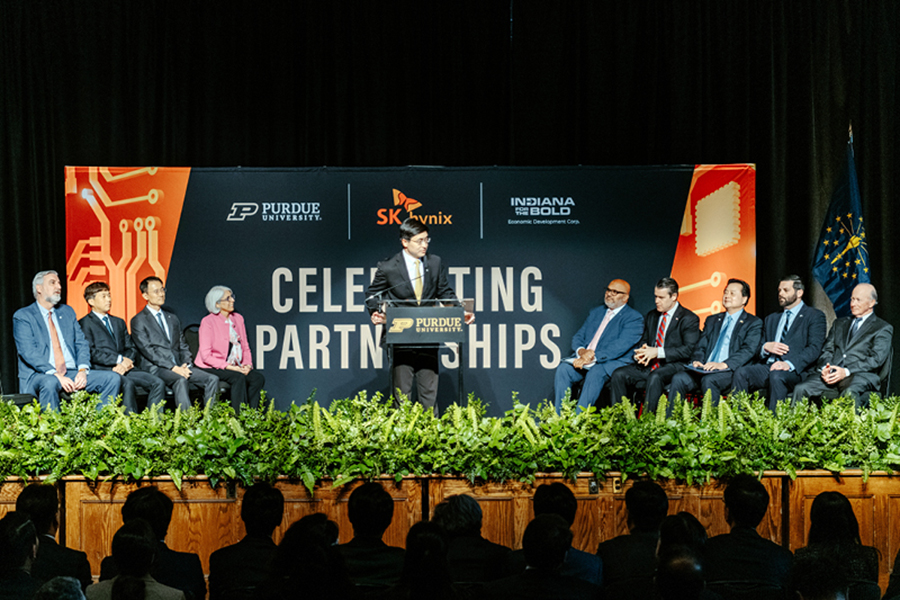Purdue's Smart Crossroads is at the center of creative logistics 4.0

The global freight and logistics industry has entered an era of disruptive innovation and disintermediation. New technologies, AI, regulatory frameworks and geopolitics threaten industry roles, business models and boundaries. Planning for these challenges and how to overcome them is a major key to business survival.
That’s where Smart Crossroads, a pivotal ecosystem that aligns Purdue’s extensive resources, meets the challenge. Together with founding member Wabash and leading industry partners, Smart Crossroads holds workshops inviting current and future partners that need to accelerate the formation of collaborations to respond to the coming innovation disruptions.
The collaborative process means Wabash has joined with Purdue University and transportation fleets, 3PLs (third-party logistics) companies, retail shippers, suppliers and pioneers in telematics, autonomous vehicles and more to ponder these far-reaching challenges. The group hopes to bring transparency to the total system overhaul required as the future of transportation and logistics in 2030 promises a landscape characterized by unprecedented efficiency, sustainability and innovation.
To bring today's technology-based solutions and resultant business change to life now takes the collective vision, understanding and capability of many to be successful."
Brent Yeagy
President and CEO of Wabash
Applying the technologies that belong to Industry 4.0, supply chain 4.0 — a term initially coined by supply chain professional Anne Wyss — will be tightly integrated, data-driven and optimized for speed and cost-effectiveness. Advanced technology and applications of AI will lead this transformation. Grounded in powerful enabling technologies, dynamic talent development, existing industry collaborations and extensive research facilities, world-class faculty in the Purdue College of Engineering and the Daniels School of Business will guide this transformation.

Brent Yeagy, president and CEO of Wabash, understands the challenges of a rapidly changing freight and logistics industry. “The innovation game has accelerated far beyond what one or two partners can do together,” he said. “To bring today’s technology-based solutions and resultant business change to life now takes the collective vision, understanding and capability of many to be successful.”
When Wabash recognized the need to assemble a broader coalition within the freight and logistics industry, it turned to Purdue. The innovative institution quickly became a partner, leveraging its high-quality engineers, top-notch business talent, world-class research centers, existing industry partnership and more.
One example of Purdue’s role in emerging technology that can play a transformative role is making it possible for electric tractor-trailers to wirelessly charge while driving on highways. “The ability to charge heavy duty trucks as they drive on interstates, a project that Purdue is involved in, if successful can completely change the underlying economic equation of freight and logistics,” said Arvind Raman, the John A. Edwardson Dean of the College of Engineering.
“The whole concept of the Smart Crossroads workshops emerged from the understanding that we need to listen to industry,” said Greg Deason, senior vice president of Alliances and Placemaking at Purdue Research Foundation. “We need to explore what they see as weaknesses or threats, strengths or opportunities in the supply chain and logistics system that we could address through our collective capabilities.”
By bringing varied stakeholders together for discussion, Smart Crossroads hopes to become the umbrella under which the broader logistics ecosystem coalesces, promising that as participants engage in the progress, they’ll gain insight into industry-critical problems, potential solutions and — perhaps most enticingly in the short term — connect with other stakeholders who may not historically have had the chance to form a partnership.



